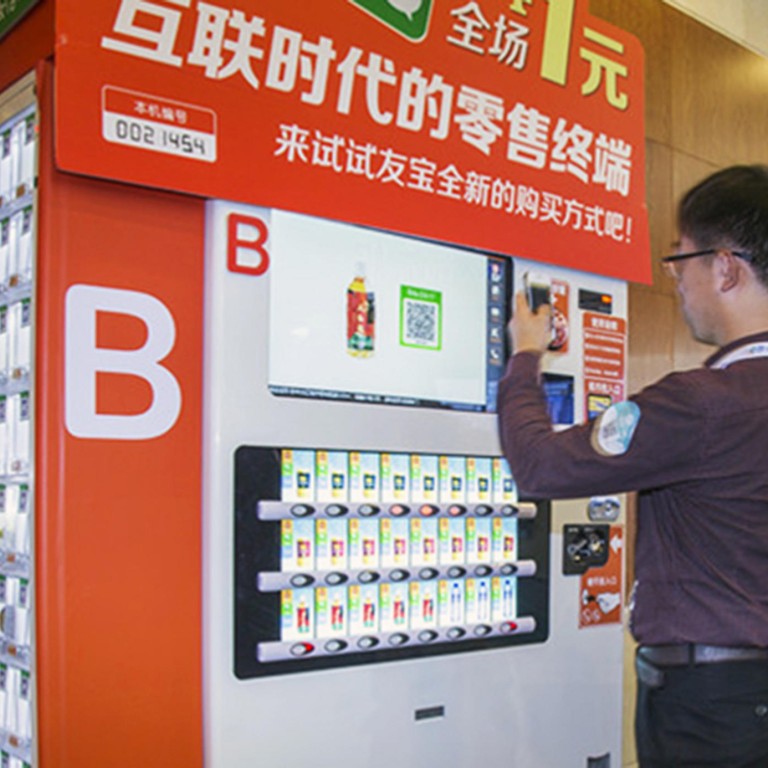
Tencent, Alibaba open mobile payments battle via vending machines
Tencent and Alibaba target smartphone-toting consumers with vending machines equipped with mobile payment solutions at train stations
The first shots of a brewing mobile e-commerce war between Tencent and Alibaba may have been fired from the unlikeliest of platforms: vending machines.
Tencent, the mainland's largest listed internet firm, and the country's e-commerce giant Alibaba have recently been waging a quiet battle for the hearts, minds and wallets of smartphone-toting consumers who patronise the vending machines inside Beijing Subway train stations.
Both internet firms have separately formed alliances to roll out "smart" vending machines that support their respective mobile e-commerce applications, which subscribers can download on their smartphones and use to buy drinks, snacks and other goods from the machines.
Asked which side was winning, Sandy Shen, the research director for consumer services at technology advisory firm Gartner, said yesterday: "The dust has not yet settled. It remains to be seen whether the buying experience is good for consumers and whether security [of the different mobile e-commerce payment systems] can be sufficiently addressed by the players."
In an aggressive launch last month, Shenzhen-based Tencent teamed with Ubox, a vending-machine manufacturer, to install about 300 drinks machines across the Beijing Subway network and support transactions by subscribers to the WeChat social mobile-messaging app, known as Weixin on the mainland.
Alibaba, however, was the first mainland internet company to adopt apps-friendly vending machines for mobile e-commerce. A spokeswoman said: "We intend to cover more than 90 per cent of China's vending-machine market."
The group's affiliate, Alipay, agreed in April to co-operate with 11 mainland vending-machine makers, including Ubox, to integrate its mobile payment solution on an initial batch of about 100 machines this year in Beijing Subway stations and various school campuses.
WeChat spokeswoman Katie Lee said the campaign with Ubox was a trial run that would conclude on Saturday. "We will review the results before making longer-term plans," she said. "It's a great way to showcase WeChat's capability for online-to-offline collaboration and mobile e-commerce."
Mobile payments via WeChat, which has more than 300 million active monthly users, are based on the app's capability to scan the so-called QR code, a type of matrix barcode that machines can read. Users simply scan the code on the vending machine, and the transaction is then charged to the bank account integrated with the WeChat account. During the campaign's promotional period, the first two drinks bought were at a discounted price of one yuan (HK$1.26).
Shen said: "In China, many people use mobile e-commerce platforms to shop, compare prices, research product information and find store locations."
Despite a lingering economic slowdown, the mainland's mobile e-commerce market is forecast to grow 34.7 per cent to 130 billion yuan this year from last year, according to the China e-Business Research Centre.

